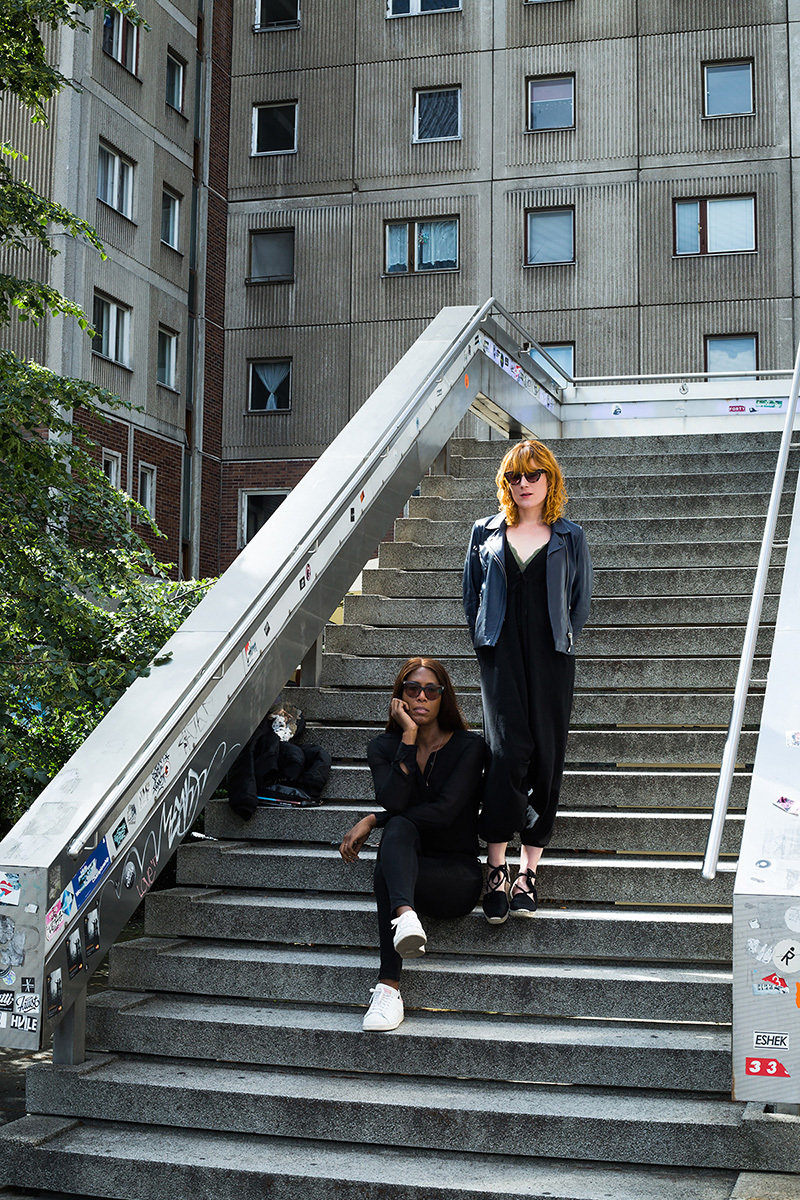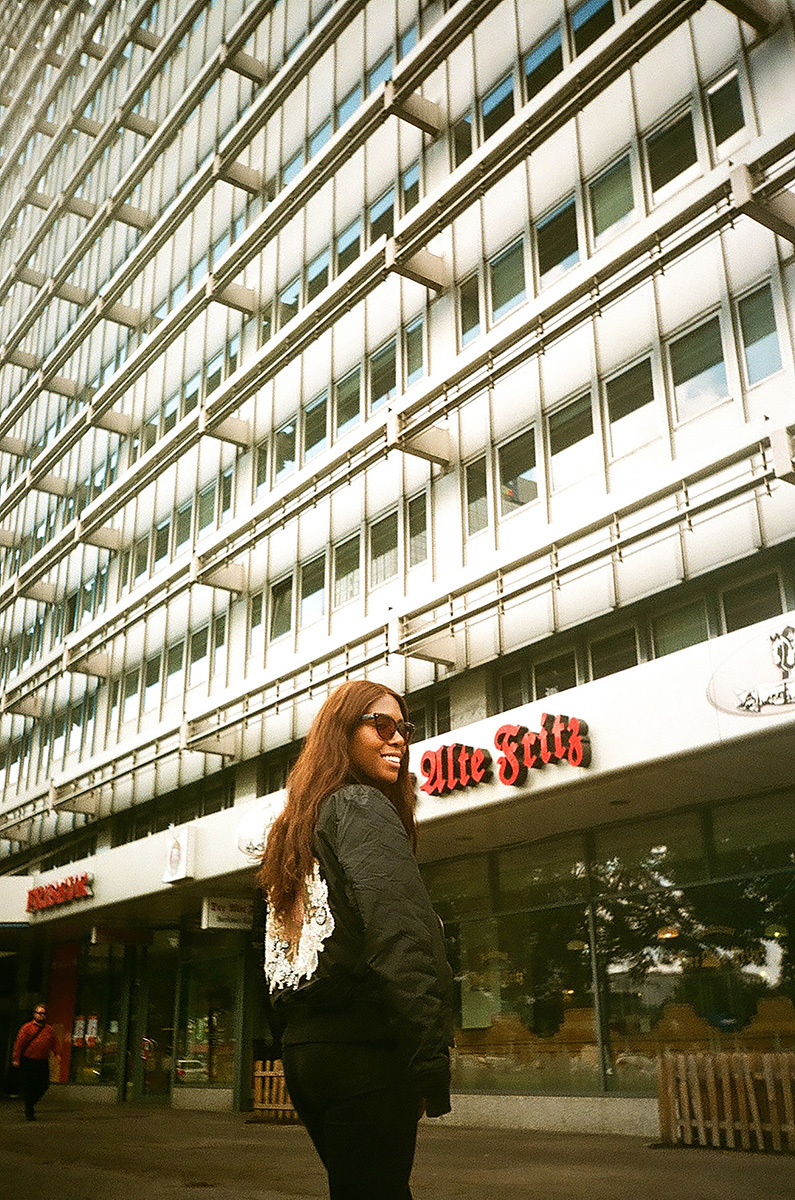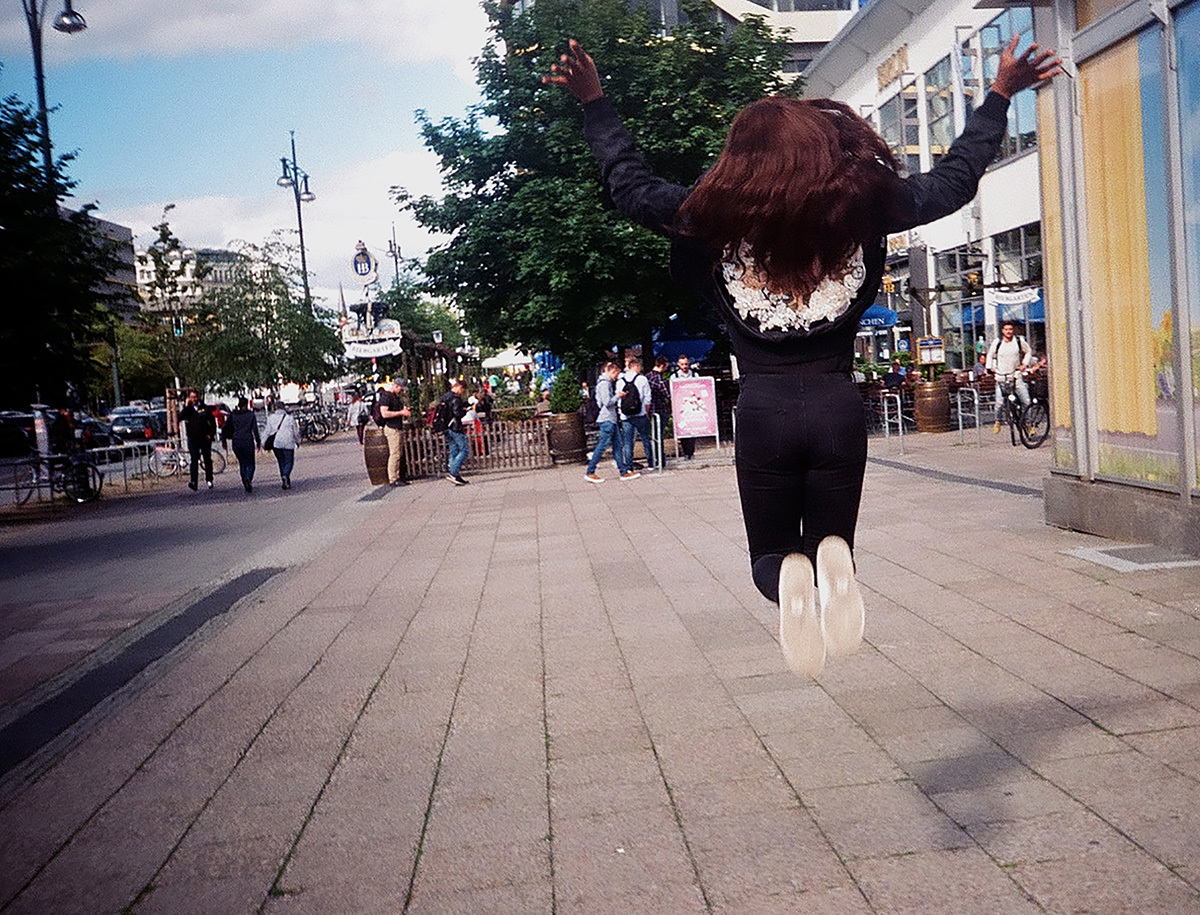DJ, producers and trans icon Honey Djion started her life in Chicago — traditionally a place where a mish-mash of music, culture, race, and economics come together. The lines between sexual orientation, identity, and gender are often blurred on the dance floor and even more so in a city that provided a home to Frankie Knuckles and Derrick Carter. Finding herself in the right place in the right time, she mentally vacuumed up all she culture she could before moving to New York and meeting a community of trans women (a twist that still informs her DJing). A self-described misfit who attracted a certain magnetic energy, she was pulled into the cultural underbelly before starting her journey as a DJ and trans woman. i-D caught up with her in Berlin.
When did you first see yourself as “Honey”?
When I moved to New York I met a community of trans women. You know, when you just let yourself be the universe responds to that and it brings people into your life. Like many trans women, I was a performer. I was a showgirl for many years. I had my own night called A Taste of Honey. Oh god. I’d lip-sync to dance records, talk shit on the mic, insult people, you know. I was a really great dancer before I was a DJ. I think that informs my DJing.
Why did you make the jump from showgirl to DJ?
I didn’t want to be a caricature of anything. I was performing for a lot of gay parties and I started to feel like I didn’t want to be the entertainment anymore. I felt like I was a minstrel for people. This wasn’t a show for me — this was how I really felt as a human being.
How did that transition start?
I hate the word “transition.” I prefer “journey to truth” because everyone’s in transition. Everyone goes from young to old, rich to poor. You have this job, that partner… everyone’s in a state of transition. All transition is constant change. I got tired of always thinking that I needed to fix something about myself. I got tired of always waiting to live. I just wanted to feel fucking okay with myself.
Transitioning genders is a slow process. When did you begin to embrace a trans identity?
I think most people come across trans people through pornography, so trans women tend to be sexualized and fetishized because it’s in the context of sex. We’re seen as parts people — we have this combination of parts and that becomes sexualized. But women are sexualized too, you know, big boobs, big ass. So once you get rid of that layer you still have to deal with what it’s like to be a woman in the world. We’re all living in a culture where it’s parts people instead of whole individuals. Being trans is such a small part of the sum of me. I don’t live my life that way.
I always say I’m not a “professional trans woman.” Before you see my gender, you see my race. I go through life as a person of color. On top of that I go through life as a woman who is a person of color, and then if you look deeper you’ll see that I’m trans. It’s really third on the list.

Do you think that affects your experience in the predominately white, male, and heteronormative music industry?
Yes. Everything I was vilified for, bullied for, and told was wrong has made me stand out among that.
Has it ever felt intimidating?
It’s a creative industry and people are really interested in authenticity now. There is a new generation coming up that isn’t bonded to old ideas of what women and queer people can do artistically. So I think it’s timing really.
Does that reflect your journey as a person?
Everything that I know, that I hold dear — art, fashion, and music — was started by queer people of color. If I’d been born a cis-gendered, heteronormative girl I probably wouldn’t have had access to the spaces I did and the culture that I did.
Is creative culture thriving in the same way as when you came to know it?
People that create change rarely get to experience that change and between AIDS, gentrification, and the internet, to me, that has fucking destroyed culture and our creative hubs. I feel like the internet has killed culture and subcultures because it’s made everyone separatist. No one goes outside of their comfort zone. Facebook and Instagram are not reality. Of course everyone you like is going to like the same shit as you. That’s the world we live in now. It’s one big echo chamber.
The culture I come from, you had to bring something. You had to have a personality or a talent. You had to bring something to the party instead of taking something away.

What is it about DJing that excites you?
The immediacy of human contact; getting an instant reaction to your performance; being connected spiritually to people through sound. To reach a place of joyous celebration. Being a bee in a hive with other bees. Everyone’s buzzing and grooving at the same time.
What’s your current buzz?
I have an album coming out in October, The Best of Both Worlds — pun intended!
Ha, explain that to me…
The reason I called it that was to own the fact that people have perceptions of trans women as being the best of both worlds. I wanted to take something that is incorrect and use it to my advantage. It’s not the best of both worlds, it’s just the best of my world.
Do you love that world?
I move between all these different worlds — the art world, the fashion world, the dance world, the trans world. I’m not just one thing. I just stuck around long enough for the world to catch up to who I was. We all have to live in the same pot, why commit?
Yeah, just live it right?
My art is experiential which means I’ve experienced things which have informed my artistic expression. It’s really an amazing thing to be an artist and to have the tool of music to do that with.

Credits
Text Rhyannon Styles
Photography Stefanie Schmid Rincon